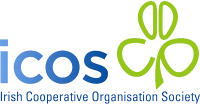
Damien O'Reilly
EU Affairs and Communication Manager, ICOS
Letter from Brussels - October 2024
Ireland’s Michael McGrath has been appointed EU commissioner for justice and the rule of law. Its significance depends on who you talk to.
For farmers across Europe, there are three or four Directorates General (departments) that impact the day-to-day business of farming and agriculture. Of course, DG Agri is the department with the biggest imprint on EU farming legislation. For the past five years, the EU agriculture commissionership was held by Polish politician, Janusz Wojciechowski. He was not seen, by some, as an effective head of EU agriculture. Now, President von der Leyen has proposed the Luxembourg commissioner, Christophe Hansen to succeed Mr Wojciechowski. His party is aligned to the European Peoples Party (EPP), the centre right and largest grouping in the European Parliament to which Fine Gael is aligned. The EPP is also President von der Leyen’s party.
So, is this good news for farmers? Well, of all the groupings in Parliament, the EPP would be seen as the most sympathetic to farmers. And the EPP pinpointed agriculture as one of the Commission jobs they wanted for the next five years. Mr Hansen (42) is a seasoned politician and served as an MEP in the last parliament. Shaping the next Common Agricultural Policy (CAP) and putting into practice the aspirations of the recently published Strategic Dialogue on the Future of EU Agriculture will be the files sitting on his desk once he gets past the grilling of MEPs – a sort of job interview routine all commissioner nominees must go through before being signed off.
‘Food’ has also been added to his title. In her mission letter to Hansen, President von der Leyen sets out a request for him to prepare a ‘vision for agriculture and food’ based on the conclusions of the strategic dialogue and to be presented within the first 100 days.
Farmers felt kicked around during the last Commission, but there are vibes that with a new man at the wheel, and his boss keen to be more understanding of the role of farmers by recognising agriculture and agri-food as strategic sectors in Europe, that policy will come from dialogue rather than diktat.
The 120-page Strategic Dialogue report makes for interesting reading particularly in terms of reshaping the CAP. Among the key outcomes, the emphasis on financing the necessary transitions – whether through a ‘dedicated and commensurate CAP budget’, a ‘temporary Just Transition fund’ and ‘a well-resourced nature restoration fund’ both outside the CAP, or the strengthening of public-private partnerships to mobilise capital – is notable. And it will become clear in budget negotiations over the next few months what the shape and direction of the next CAP will be. The report also includes several critical recommendations aimed at empowering farmers within the value chain including acting on selling below cost, improving transparency, addressing unfair trade practices, and promoting the cooperative model. The test now will be to see if the new-look Commission is serious about delivering on those promises for the EU farmers, food producers, and co-operatives.






